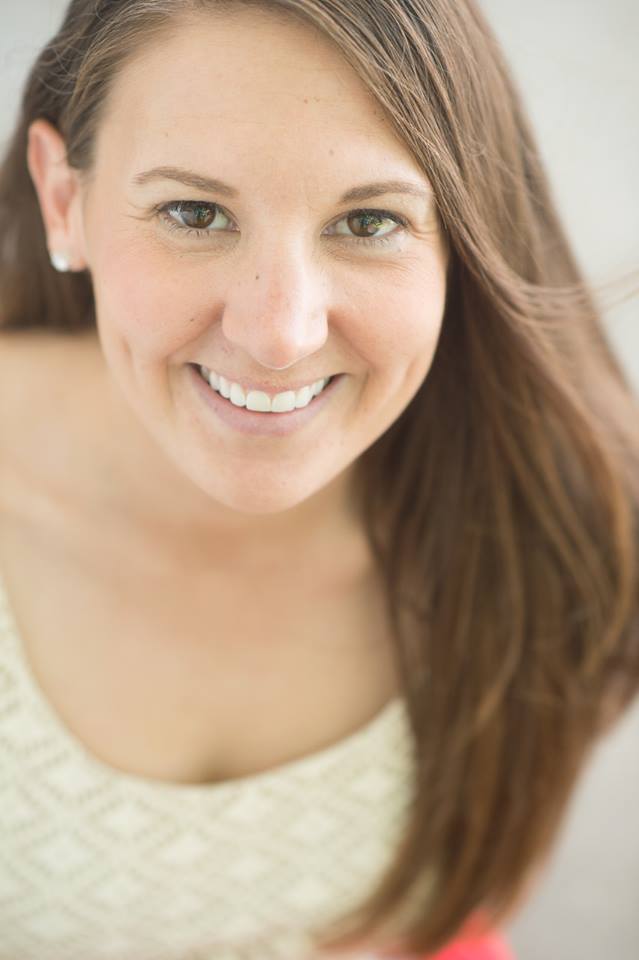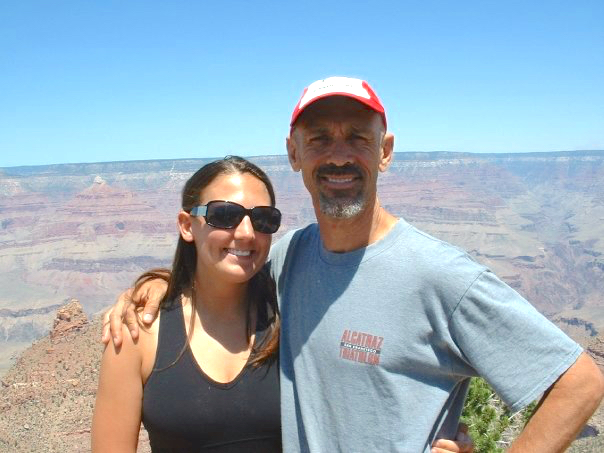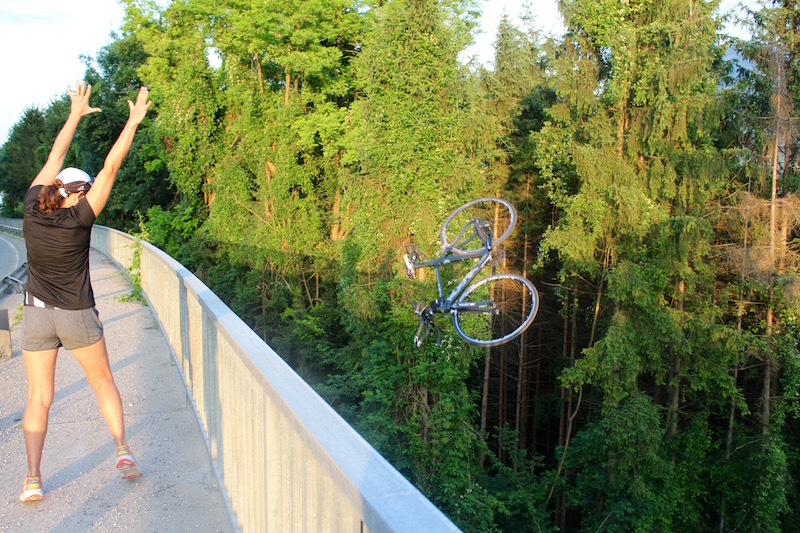Going Long: An Interview with Susan Lacke
|
I first met Susan Lacke in 2010 when I was working as a senior editor at Competitor and she was writing a humor column for the magazine and website. It was clear from the get-go that Lacke not only had a way with words—she also possessed an uncanny ability connect with her readers on a deeply personal level while inciting a belly laugh or two along the way.
Written words are in important tool for Lacke, who is deaf, and she best expresses herself through the stories she tells for a variety of publications, including Triathlete, Women’s Running, Success, and others.
Lacke’s first book, Life’s Too Short To Go So F*cking Slow, was published last fall by VeloPress. It’s the unlikely story of her friendship with her former boss, Carlos Nunez, an Ironman triathlete who helped Lacke kick a smoking habit and cultivate an interest in endurance sports. That relationship “traversed life, sport, illness, death, and everything in between” and the book is chock full of life lessons that will make you laugh, cry and reflect on what’s really important in your own life.
I recently caught up with Lacke to talk about her book, how she got into endurance sports, her relationship with Nunez, what sparked her interest in writing, how she’s made part of her living doing it, and a lot more.
Let’s start with how we got connected in the first place: writing. Way back when, we gave you a humor column at Competitor magazine. And occasionally other pieces. And then your byline started showing up elsewhere around the web, mostly in the endurance sports space. Now you’re a published author. How the hell did that happen? Loaded question, I know.
I know, right? Let this serve as an inspiration to all the no-talent ass clowns out there. If I can do it, you can do it.
It really was a series of happy accidents that got me to this place. I’m not trained in writing in any way—by trade, I’m a college professor who teaches human development—and I’m not a naturally talented endurance athlete either, so to be in this position is quite unexpected.
When did the idea to start writing stuff for publication get planted in your head?
It wasn’t so much that it got planted as I fell face-first into it. Someone I knew told me to let him know how my first marathon went, and though he was probably being polite, I took that quite literally, sending a million-word race recap in an e-mail. Despite being loaded with boring minutiae, he saw something in there and asked me to write a guest post for his blog. It was successful, so he asked me to write more. After about a year of that, I was offered a humor column at Competitor Running. It all kind of snowballed [from there]. People thought I could write. I figured at some point they’d figure out I have no idea what I’m doing, but here we are, eight years later on a book tour.
I want to get to the marathon/endurance sports part of all this in a bit, but I’ve read a lot of your work. I’ve edited it. I’ve even rolled my eyes at it once or twice. But the biggest thing that’s always stood out to me about your work, especially the columns, is that it’s unapologetically Susan Lacke when I read it. How do you pull that off and let your personality shine through the words you put on the page?
You’ve only rolled your eyes “once or twice”? You meant to finish that statement with “per day,” right?
Or “per sentence,” but that’s besides the point.
I don’t really know any other way, to be honest. When I came to Competitor, I was hired to tell stories, and that’s what I do. I’m not an expert on endurance sports. I can’t tell you how to qualify for Boston or win your age group, because I’ve never done those things. But I have forgotten to eat. I’ve been chased by massive birds mid-run. I’ve tripped and crashed and made a total ass of myself. I’ve made horrible decisions and I’ve come out with the craziest stories. So I sit down, open my laptop, and type, “You’re not going to believe this shit that just went down…”
Why do you think your writing has resonated with so many people? And are you surprised by that at all?
Yes and no. I mean, the majority of people who write about endurance sports take themselves so seriously! People want someone to remind them that at the end of the day, we’re a bunch of idiots gallivanting about in spandex. I wasn’t expecting me, personally, to be that someone.
How—and why—did you get into endurance sports?
Believe it or not, it was a Marlboro Light.
I was smoking outside my office one day when my boss sat down next to me. He asked me for a drag of my cigarette, which was completely shocking, since he had a reputation for being a health nut—the kind of guy who snuck out between classes and meetings to go swim laps in the campus pool. Still, I handed him my cigarette as I watched him take it between his fingers and stub it out in the ashtray. He was convinced I needed a better outlet for my stress than smoking, so he invited me to swim laps with him in the campus pool. I wasn’t on board, mind you, but he was my boss and it was my first job. I didn’t know how to say no to the guy who signed my paycheck. So…I swam with him the next day, and the next, and the next. It eventually progressed to running and triathlon.
And this was Carlos?
Yes! Dr. Nunez, who eventually became Carlos, who eventually became my best friend and training buddy.
And who you just wrote a book about.
That’s right, Life’s Too Short To Go So F*cking Slow. I named it after something he said to me while training. He was an accomplished Ironman triathlete, and I was…not. We were very different people, but somehow, that worked for our friendship.
Back to that encounter outside your office. Aside from not being able to say no to your boss, what was going through your head after that first swim?
Honestly? I was hoping I was getting a good tan. I really didn’t have much of a desire to become an athlete or get healthy. That came later. But I think that’s why it worked—there was never any expectation that I was going to overhaul my life. Carlos just invited me to go for a swim. He didn’t need to be overbearing or critical of my unhealthy habits—he just needed to plant the seed that maybe there was a different way.
And when did that seed really start to grow?
Things got worse before they got better. I left that teaching job in Arizona with Dr. Nunez to move back to Wisconsin to please my husband. I was hoping to save a marriage I really had no business entering in the first place. It didn’t work. We divorced, and I didn’t take it well. I gained weight, drank a lot, and let some really nasty thoughts take up residence in my head. At some point, I took a look in the mirror, and I didn’t like what I saw. I needed to change, but I wasn’t sure how. I just kind of flailed around, knowing I should change but not wanting to actually do the hard work to make change happen. Carlos was full of tough love and persistent as hell, saying that training for a 5K was just the ticket to a better life. I thought he was full of shit.
Spoiler alert: Carlos was not full of shit.
Building off that last question, in what ways did your relationship with Carlos eventually grow along with it?
Have you ever had someone who is unconditionally and unflappably in your corner? How did that affect you? Carlos was that person for me. I was 23 years old when I met him, and—as 23 year-olds are wont to do—I was fucking up a lot. Because I was fucking up a lot, my confidence level was not great. So here was this guy—my boss, mind you, and 19 years my senior—who saw past the fuck-ups and said, “You can do more and be better.” I didn’t agree, but I trusted him, and sometimes that’s all you need: someone to believe in you until you start to believe in yourself.
A few years later, the tables were turned when Carlos was diagnosed with terminal cancer. The doctors told him he had six months to live. He wanted to fight, and he did—for four more years. I was 100 percent in his corner for whatever he needed, whether it was a pep talk when he didn’t think he could take another chemo treatment or supporting his bucket-list pursuits, like climbing a mountain or signing up for one last Ironman.

Before you first started swimming, and then triathlon-ing, with Carlos, what were your initial thoughts of runners, cyclists, triathletes, and other endurance athletes?
I thought they were a cult, to be honest. A salad-eating, cardio-obsessed cult. Before I worked for Carlos, I was in graduate school. My cohort in family and community wellness was mostly made up of people studying exercise and nutrition, so running and triathlon was a normal weekend occurrence for my friends at school. I, the black sheep, was specializing in human sexuality. My weekends were spent at the bar, making fun of half-marathoning salad eaters. It was easier to judge them than join them.
And how have those initial impressions changed over time?
I still think it’s a cult. But I’ll be damned if the Kool-Aid isn’t delicious.
Where are you with your own athletic pursuits these days and what still excites you about the sports?
I’m trying to figure that out, actually. At the conclusion of my third Ironman, I threw my bike off a bridge. I’m definitely retired from Ironman. Not all triathlon necessarily, but definitely Ironman. After Carlos died, I lost my love for that pursuit—without him, it’s just not as much fun. But it also means I need to figure out what role sport plays in my life now. I feel like everyone’s so quick to label themselves as some subset of endurance sports: “I do Ironman.” “I’m an ultrarunner.” “I qualified for Boston.” I don’t know my label, so I’ve been doing a little bit of everything. This year, I ran to the top of the Empire State Building and the bottom of the Grand Canyon. As we speak, I’m on my way to England to race a wheel of cheese down a hill. After that, I go to South Africa to run Comrades. I’m treating this process like an all-you-can-eat buffet: I don’t know what’s good, so I’ll try a little bit of everything. And that’s what still excites me about the sport—the places my run takes me.

How has your own relationship with endurance sports evolved over the years?
I started out thinking that running and triathlon would make me less of a fuck-up. That hasn’t been the case. But it has taught me that those fuck-ups are not the end of the world. Before, I’d dwell on every mistake, keeping a running list of personal faults that grew by the day. It was debilitating. But now? I can go for a run and fuck up ten times in five miles, and I still somehow manage to survive and learn and grow. I’m tougher than I give myself credit for. I need that daily reminder that it’s going to be okay—I’m going to be okay, in spite of myself and because of myself.
Lets dig into this whole writing thing for a little bit. When did you first realize that you actually…enjoyed it?
Any writer who says they enjoy writing is a filthy liar. It’s hard, man. You know it’s hard. But it’s also insanely rewarding. For me, it’s a way to be “normal.” And yes, I know, Mario, you’re going to say I’m as far from normal as it gets, but stay with me here.
I’m deaf. A lot of people who read my writing don’t know that about me. And man, that’s the coolest, because if you meet me in person, my deafness is very obvious, very quickly. I’ve got a heavy accent. I will aggressively try to position myself where I can see your face to read your lips. Even then, I’ll probably misunderstand something you say. It’s awkward and embarrassing at times. People sometimes say really ignorant things to me, and they usually mime those ignorant things with made-up sign language. I try to have a sense of humor about it, but sometimes, especially when I encounter people who think my hearing disability equates to a cognitive disability, it’s hard.
But when I write, no one knows or cares that I’m deaf. And honestly, that little slice of normalcy is what keeps me coming back to the keyboard every day.
And when did you start to think, “Well damn, I’d like to try and make a career out of this!”?
Writing started out as a fun hobby that occasionally gave me enough money to restock my GU supply. I have a hard time saying no, so when more writing work kept coming in, I just added more to my to-do list. One day, people are going to figure out I have no idea what I’m doing, so until that day, I’m going to take every opportunity that comes my way. Now, the to-do list is pretty full: I still teach, but I also write. My days are jam-packed, and I’m grateful. Most people don’t like what they do for a living, and here I am with two jobs I love.
How often do you think about Carlos? And when you do, what specifically comes to mind?
Carlos used to say that his favorite thing about endurance sports was the pain. “The pain is the best part,” he’d exclaim, “It’s what lets you know you’re alive!” I didn’t get it until I actually became an endurance athlete, but he was right. We take for granted our healthy bodies and the life within. The statement took on a new meaning when he was diagnosed with Stage IV cancer. He was willing, even grateful, to accept the pain of chemotherapy and surgeries, because the pain is what lets you know you’re still alive.
I think of that when things get hard, especially while racing, just how incredibly lucky I am to be here, doing this thing that hurts, because my body is doing what I am asking of it.
Take me through the process of writing the book. You wrote it—and please correct me if I’m wrong—after Carlos passed away. What was that like? Was it cathartic for you?
I started writing it the day after Carlos was admitted to hospice. I knew it would be the last time I saw him, and the emotion of that day was so overwhelming. I was overwhelmed with this fear that when he died, so too would all of those lessons he taught me about sport, friendship, and life. That day, I started frantically writing down all those lessons as they popped up in my memory, words and phrases scribbled on scraps of paper or napkins, notes on my phone typed mid-run. Those eventually became my book.
It was cathartic, sure. But more than that, it was terrifying. I had to do the story justice, and that meant I had to be completely honest. Carlos was a hardass, and he could be hard to love sometimes. I struggled with writing that, because you’re not supposed to speak ill of the dead, you know? I was no saint, either, and writing this book meant letting some pretty big skeletons out of the closet. There were days when I considered sending back my book advance and walking away, just so I wouldn’t have to relive certain parts of the story.
Getting into the writing weeds a bit, how did the process of writing the book differ from the type of magazine and column-style writing you were used to doing? And did you enjoy it?
They’re both fueled by obscene amounts of caffeine and self-loathing. The writing process sucks, but the response I get from readers makes it all worth it. I am rendered speechless on the daily by the e-mails I get from people who say this book resonates with them.
What advice would you give an aspiring, but frustrated writer who is trying to break into “the business”?
Work hard and be nice to people.
And finally, what are you working on these days? Any more books in your future? And if not, what does it hold for you?
Yes! All those running adventures I was telling you about? That’s my next book, coming out next spring with VeloPress! So many people assume that running is just 5Ks and marathons, and it’s really so much more. I’m partaking in the many unique running experiences around the world, from cheese racing to a mile throwdown in Des Moines to a charity trip serving runners in Cuba. I placed 10th at the National Championship of Nude Running in Florida a few weeks ago—that’s definitely getting a chapter.